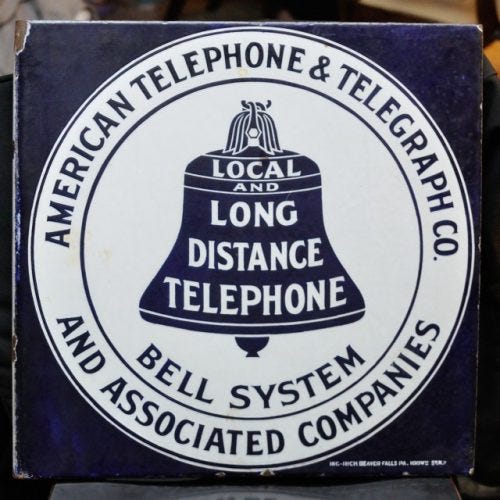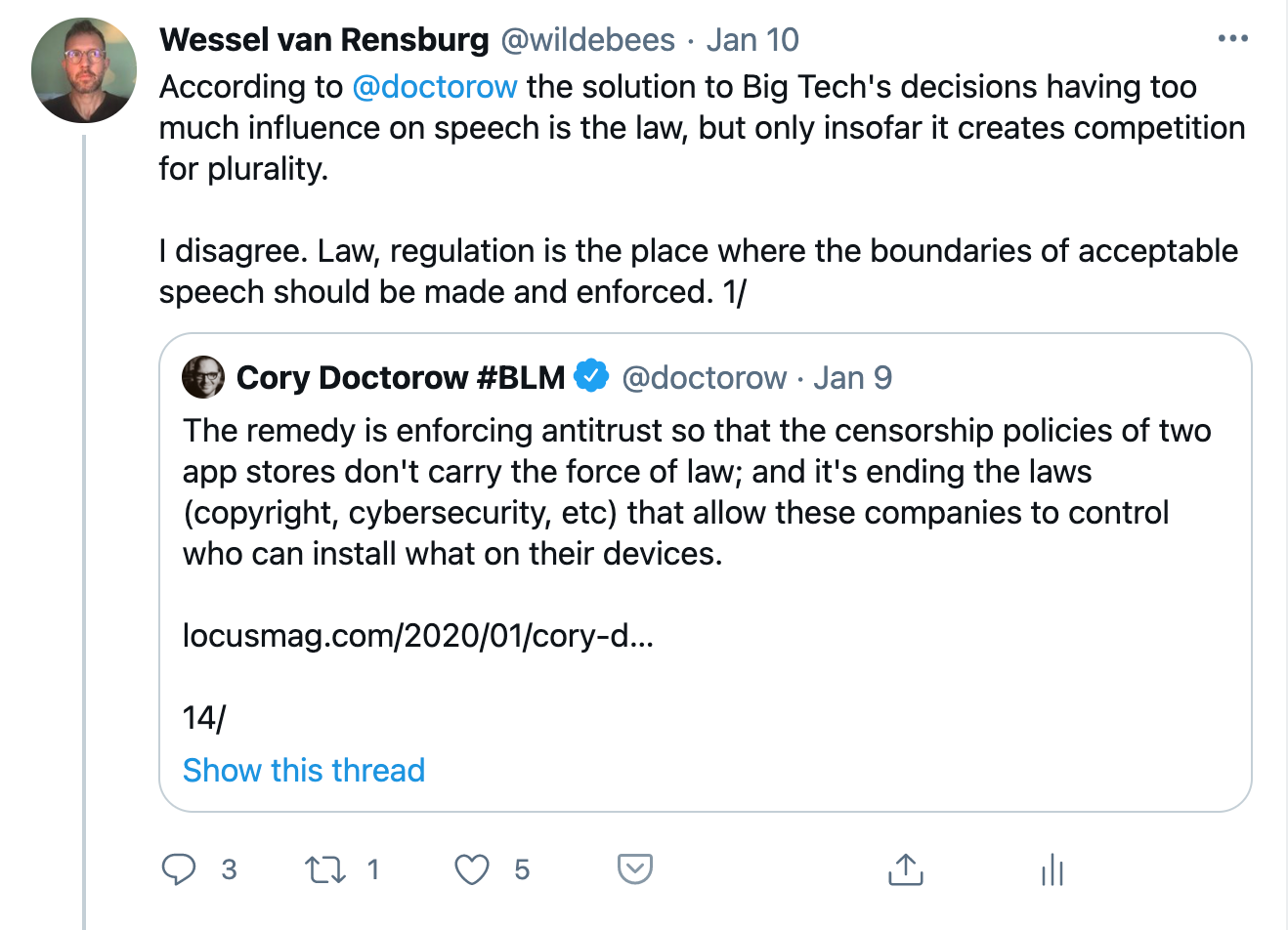No "free" markets in networks
To have competition requires regulation, and the result is not always "efficient".
Recently, author Cory Doctorow, weighed in on the debate around free speech on the internet after Facebook and Twitter banned Donald Trump’s accounts, and Apple, Google banned the Parler social network app from their app stores.
Doctorow’s solution to excessive big tech power - a point I agree with - is competition (anti-trust) law.
I begged to differ (screenshot below).
An exchange followed, where I made the case against regulation to introduce competition (breakups), arguing that the US was world leaders in telecom when it had a regulated monopoly — but was as a result of this obsession with competition, falling behind Asia.
The US was at one point in time far ahead of the rest of the world in teledensity - and the cost of telecoms to its consumers was very low. Today it is one of the relatively more expensive and slow places in the world to be connected to the internet. But Doctorow disagreed with this solution.
However, two subsequent pronouncements by prominent tech and telecoms leaders show growing support for my point of view.
Writing in the FT, ex-Google head Eric Schmidt warned that the west would fall behind Asia in 5G roll out, and argued for the suspension of 5G auctions, for government subsidies, and for infrastructure rollout obligations.
“The massive sums winners paid for the spectrum will reduce their financial capacity to actually use it. Instead, it will probably result in disinvestment and downsizing.
At the same time, $81bn is merely a trifle on a government scale, equivalent to less than a month of US debt issuance and the money is unlikely to be spent on the 5G network the country needs. The outcomes are predictable: Americans will face higher prices and weaker digital services — yesterday’s internet tomorrow.”
What Schmidt does not expressly say (it’s still not fashionable in the west), but what is implied, is that this will entail less competition. That’s part of the profitability and investment equation.
And a few days ago, Alvarez-Palette, the head of Telefonica said much the same, namely that "regulators should stop treating spectrum auctions as an opportunity to raise money and renew competition policies to allow consolidation and innovation in the market."
“This is a structural error and a new industrial approach is needed,” he demanded that, “the EU must better align competition policy and industrial policy if the EU's industrial strategy is to succeed". If not, Álvarez-Pallete believes it will become increasingly difficult for the sector to make the necessary investments.
For Schmidt, the urgency does come from competition, but not between western companies, but rather between the west and particularly China:
“China will soon have a national network with speeds of 1 gigabit a second. With China’s head start, the next generation of technology giants — and the products and services they build — are not going to be European or American but Chinese.
About a year ago Schmidt made a startling point with respect to the race in Artificial Intelligence when he argued that the US business can not compete with China if the US government does not assist them:
“Success matters for more than our companies’ bottom lines and our military’s battlefield edge. We must show that these new technologies can advance individual liberty and strengthen free societies. For the American model to win, the American government must lead.”


